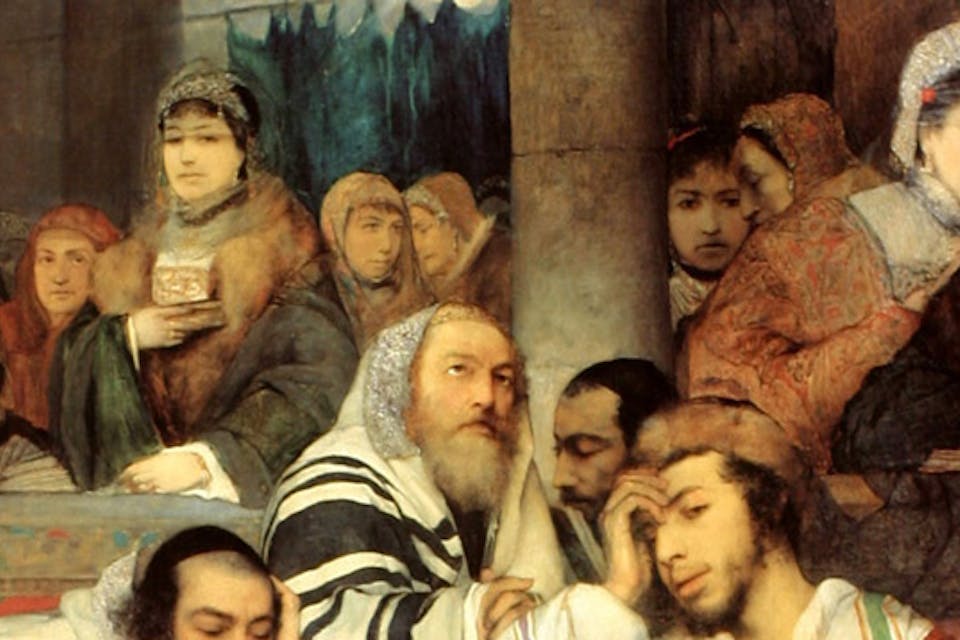
October 2, 2014
Guilty, Guilty, Guilty
Why should we confess, particularly on Yom Kippur? Why in public? And why so many times?
I have two Jewish neighbors on my street in the little Yorkshire town of Hebden Bridge. One, who has chosen to have nothing to do with religion of any kind, has a daughter who’s opted to live as an evangelical Christian. The other, a woman in her late thirties and the daughter of good North London Jews, married a man she met at college who was cosmopolitan, intellectual, and sensitive—all the things she considers to be Jewish characteristics. “It’s only when he’s with his parents that I realize he’s not Jewish.” When we moved into the neighborhood, she initially brought her two daughters to our house for Sabbath meals, but as time passed she stopped accepting our invitation. Clearly it was simpler to avoid a shared religious ritual, even over a meal, than to address the questions her daughters were quickly becoming old enough to raise.
So it was a surprise when she asked me to come speak to her students about Jewish tradition. A hospice nurse, she had become a lecturer on end-of-life care and was now teaching a whole course on the subject. What irked her enough to seek me out was the frivolity with which some of her students mocked the need for ritual and symbolic acts in patients who might “still believe in that sort of thing,” as if they were a pygmy tribe. The nursing school is at the University of Bradford, in the middle of Britain’s largest Muslim community, but she was not about to invite an imam, or a Church of England vicar, or a Roman Catholic priest, and she didn’t know any rabbis. But we had talked about end-of-life care and about my interest in using extended interviews or memoir transcription as an alternative therapy for the dying: a way of getting people to review unfinished business or to find a starting point for conversations they might wish to have with their family.
In other words, we’d talked about vidui: the Hebrew term for a form of private or public confession recited quietly as part of daily prayer in some congregations and aloud in all congregations as part of the Yom Kippur service. The daily version, beginning ashamnu, is shorter; something like it appears in the Book of Daniel, “We have sinned, and corrupted, been wicked, and rebelled, even by turning from your commandments and judgments.” The verbs both in it and in the longer version, “Al het,” are in the plural—“we,” not “I”—and both are acrostics, a form that can aid the memory by providing a catalogue of dozens of sins in alphabetical order.